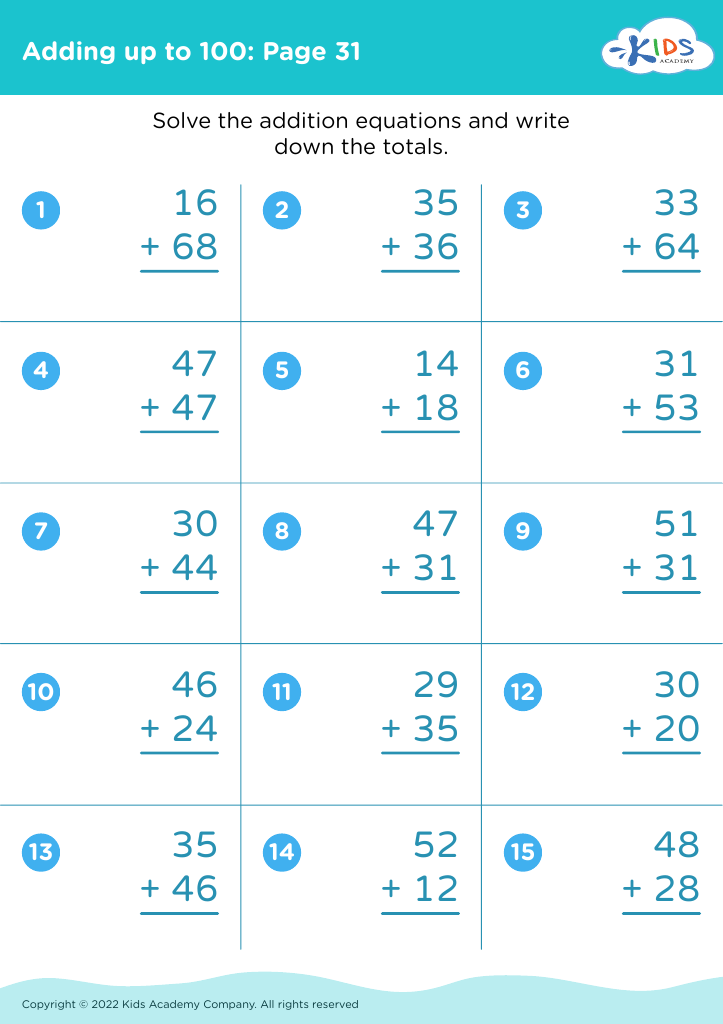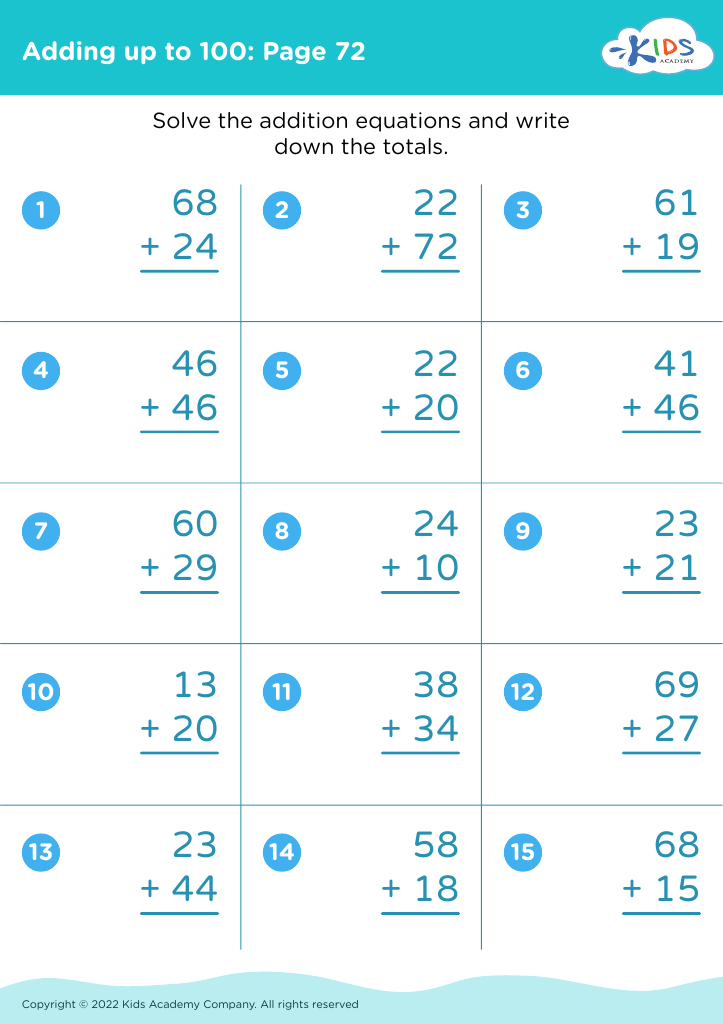Develop number recognition Addition Worksheets for Ages 3-9
5 filtered results
-
From - To
Enhance your child's number recognition skills with our engaging addition worksheets, designed specifically for children ages 3-9. These worksheets provide a fun and interactive way to introduce basic addition concepts while reinforcing number identification. Each activity encourages kids to practice counting, recognize numbers, and solve simple addition problems, laying a strong foundation for future math learning. Our user-friendly format features colorful illustrations and engaging exercises, ensuring that children remain motivated and eager to learn. Perfect for at-home practice or classroom use, these worksheets make math enjoyable, helping young learners develop crucial early math skills with confidence. Explore our collection today!
Number recognition and addition skills are foundational for children aged 3-9, serving as critical building blocks for their mathematical understanding and overall cognitive development. Parents and teachers should care about these skills because they play a crucial role in promoting early numeracy, which is linked to future academic success. Recognizing numbers enables children to identify quantities, engage in simple counting, and develop spatial awareness, essential skills for everyday life and more complex math concepts later on.
Furthermore, mastering addition at a young age fosters confidence in problem-solving and critical thinking. Children who receive early instruction in these areas are better prepared to handle more complex math topics in school, reducing anxiety and improving performance as they progress through their education.
Early engagement also nurtures a positive attitude towards math, encouraging a lifelong interest in the subject. Parents and teachers can enhance this learning experience by using fun, relatable activities—like games and hands-on experiences that integrate addition into daily routines. When children build strong number recognition and addition skills, they are more likely to enjoy learning math, paving the way for higher achievement levels in school and cultivating a solid foundation for future learning.





















